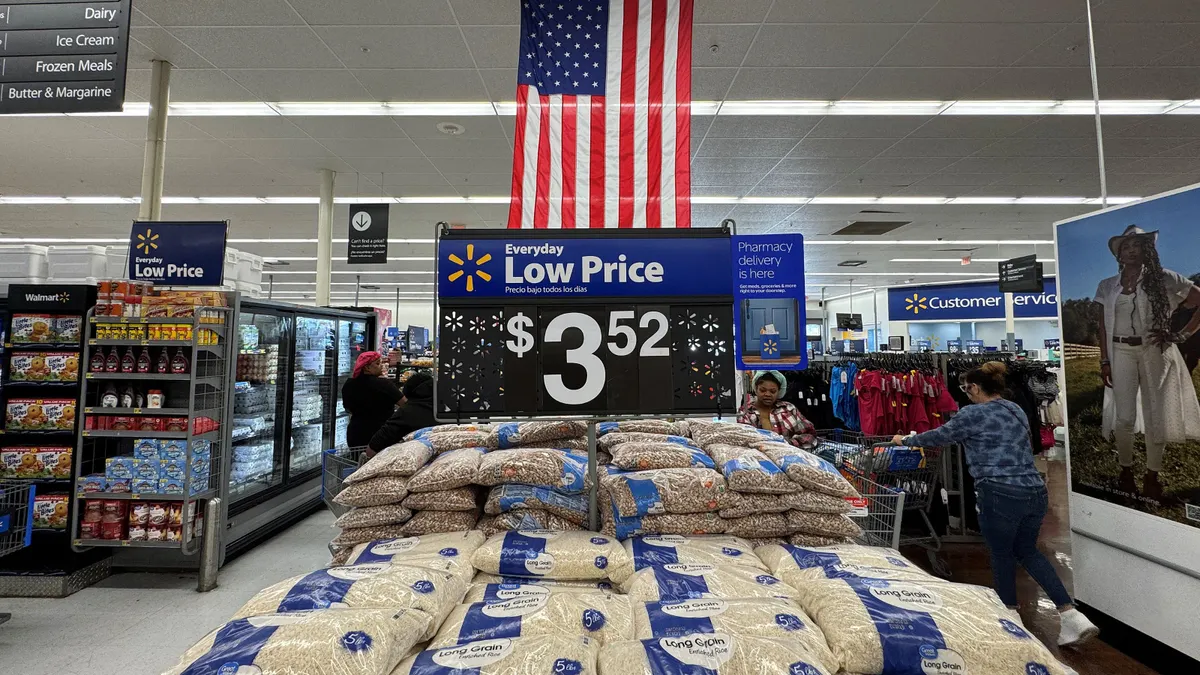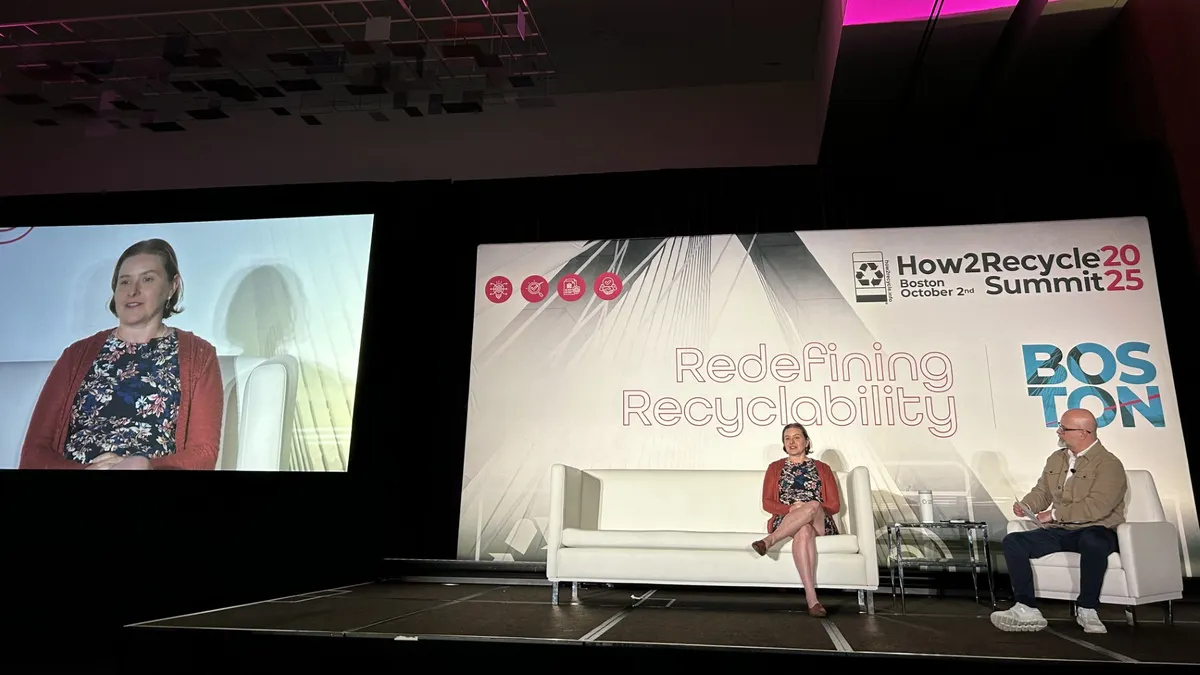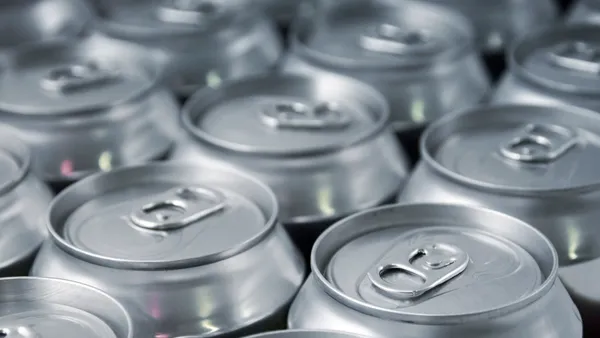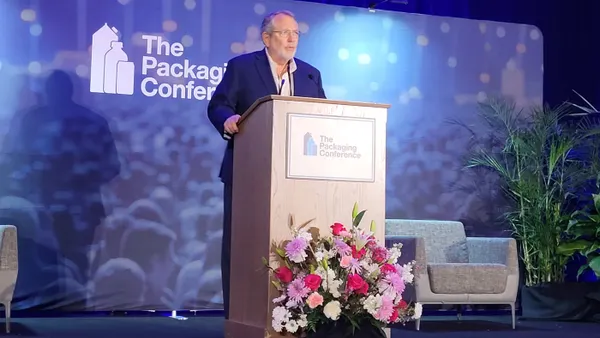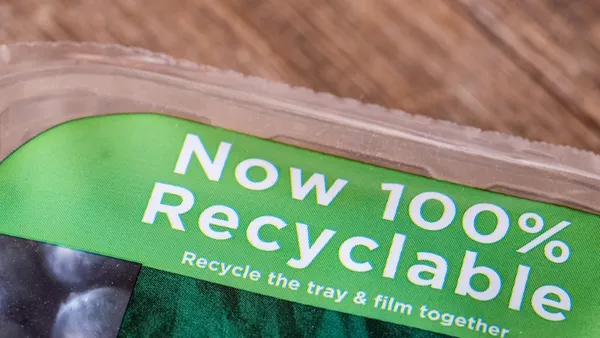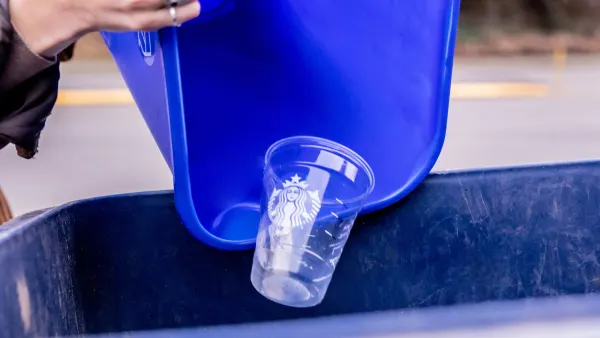Dive Brief:
- Several major brands and retailers recently exited the U.S. Plastics Pact, a group created to unite organizations across the plastics value chain around a set of shared 2025 packaging sustainability targets.
- Walmart, the largest retailer in the U.S., is no longer participating with the U.S. Plastics Pact. Mondelēz, Mars, Nestlé and L'Oréal USA are also among the previous members that appear to have recently stepped away from the group, per an archived version of USPP’s website. Those companies did not comment.
- Multiple nonprofits, such as the Ocean Conservancy and the National Stewardship Action Council, also appear to have exited the pact.
Dive Insight:
The U.S. Plastics Pact launched in 2020 as part of the Ellen MacArthur Foundation’s global network of plastics pacts with some 60 activators, including those aforementioned companies that have recently left. In aligning with the U.S. Plastics Pact, participants committed to four 2025 packaging targets.
As of 2023, 50% of plastic packaging that activators placed on the market was reusable, recyclable or compostable. Additionally, USPP reported there was an average of 11% postconsumer recycled content or biobased content in activators’ packaging portfolios.
Ahead of 2025, USPP released an updated road map with updated targets pegged to 2030, iterating on the 2025 targets.
| 2025 targets (announced in 2020) | 2030 targets (announced in 2024) |
| “Define a list of packaging to be designated as problematic or unnecessary by 2021 and take measures to eliminate them by 2025” | “Eliminate all items on the Problematic and Unnecessary Materials List and reduce the use of virgin plastic by 30% by 2030” |
| “By 2025, all plastic packaging is 100% reusable, recyclable, or compostable” | “Design and manufacture 100% of plastic packaging to be reusable, recyclable, or compostable” |
| “By 2025, undertake ambitious actions to effectively recycle or compost 50% of plastic packaging” | “Effectively recycle 50% of plastic packaging and establish the necessary framework to recycle or compost packaging at scale” |
| “By 2025, the average recycled content or responsibly sourced bio-based content in plastic packaging will be 30%” | “Achieve an average of 30% postconsumer recycled content or responsibly sourced biobased content across all plastic packaging” |
| “Identify viable reusable packaging systems and increase their implementation and scale by 2030, as part of reducing the use of virgin plastics” |
USPP said work on the 2030 targets would begin Jan. 1, 2026.
Eric Downing, the group’s director of marketing and communications, said Tuesday that the U.S. Plastics Pact’s website lists all of its current “activators” as of today. Newly appearing activators include Clysar and Tipa.
As part of USPP membership this year, there’s a new category dubbed “activator accelerators.” Participants on that list of more than a dozen — which includes Aldi, the Association of Plastics Recyclers, Avery Dennison, Charter Next Generation, Church & Dwight and Kraft Heinz — have committed to being activators through 2030.
Otherwise, activators renew on an annual basis, Downing explained. USPP did not comment on how it currently calculates membership fees for activators.
NSAC Executive Director Heidi Sanborn said her organization’s involvement as an activator included participating in meetings when the pact was developing its problematic and unnecessary materials list. Regarding its decision to step away, Sanborn explained that NSAC was not seeing benefit commensurate to the time invested. Additionally, USPP wanted NSAC to pay to participate, which had not been a condition for NSAC’s participation previously, Sanborn said.
Companies that have worked with the pact have acknowledged challenges to hitting their own 2025 goals.
For instance, Mars last year reported that while it was making “good progress” on goals aligned with the Ellen MacArthur Foundation’s global commitment, the company was “unlikely to fully meet them by the end of 2025,” in part because “the design and infrastructure changes needed are taking longer than we anticipated.”
Walmart also cast doubt on the feasibility of its 2025 goals. “While we have made significant progress towards our ambitious 2025 goals for recycled content, virgin plastic reduction, and packaging recyclability, we expect to fall short of achieving these goals by 2025,” the company wrote in a February update.
Walmart engages with other industry coalitions related to packaging transformation. It’s a co-founder of the EPR Leadership Forum, a group that also includes Mondelēz, Mars, Nestlé and L'Oréal USA, as well as Amcor, Coca-Cola, Ikea, Keurig Dr Pepper, Kraft Heinz, PepsiCo, SC Johnson and Target. Walmart is also a founding member of Circular Action Alliance, the industry-founded producer responsibility organization leading EPR implementation in multiple U.S. states.
Walmart is one of the subjects of a recent campaign by the the National Legal and Policy Center, a conservative nonprofit group focused on research and legal action, regarding corporate plastic packaging policies. NLPC sponsored a shareholder proposal calling on the company to reexamine policies. Walmart’s annual meeting is June 5.
In a 2024 report, EMF credited dozens of plastics pacts globally over six years with increasing recycled content in packaging by 44%, and eliminating 360,000 tons of problematic and unnecessary plastics, among other metrics.


